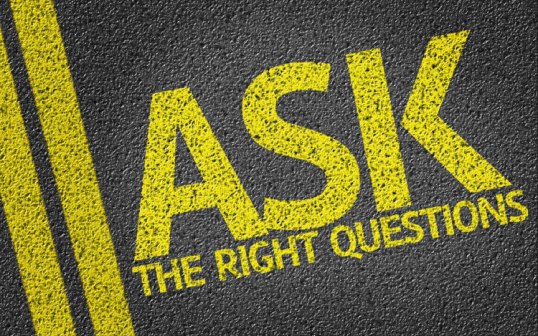Search Engine Marketing is a term that is commonly used to classify and summarise both free and paid digital marketing practices via search engines.
That would pack per-per-click advertising (PPC ads), and search engine optimisation (organic search) under a common umbrella known as SEM.
Therefore, SEM would refer to any form of marketing that has to do with the search engines.
But, like many other techniques and methods, it’s not likely to work as we expect. You will always be presented with some exceptions to the rule.
Sounds a bit confusing, right? But people in the search marketing space have gotten used to ascribing the term SEM strictly to paid search marketing.
And it seems that it isn’t going to change anytime soon.
What’s the difference between PPC & SEM?
They’re the same thing!
Pay per click advertising also refers to search engine marketing, or should we say it’s one of its main components.
Search Engine Optimisation isn’t related to either of the above.
The influx of so many marketing methods and techniques over the years, coupled with the need for marketers to classify other paid traffic methods, resulting in confusing two different cost-driven marketing methods as the same entities (creating even more confusion for inexperienced marketers).
That said, it’s possible to get the idea even more twisted.
While the use of the term Pay-per-click is the right call – regardless of whether people refer to it as paid search, CPC, search ads, Google Adwords, PPC – we know it’s a paid marketing method via search such as Bing and Google.
Other methods and terms used in the digital marketing game (whether it’s free or paid) may not be explained clearly and straightforwardly, either.
The Difference between SEO & PPC
We seem quite familiar with search engine optimisation. But this hasn’t been figured out as one would expect.
Marketers don’t optimise search engines; we optimise web pages and content for search engines (after we must have first optimised them for the readers) so they can pick them up and serve it to users.
We have also come to agree that PPC is the same as SEM, or a component of it, at least for now.
- They are both paid methods
- They both require a budget
- Both are huge money makers for advertising platforms as well as search engines like Bing and Google
For instance, Wikipedia refers to Search Engine Marketing as “a type of digital marketing involving website promotion by giving more visibility on the search result pages mainly via paid marketing.” However, it still doesn’t see them as the same entity.
In fact, Wikipedia has a separate page for pay-per-click marketing, which is different from SEM (despite the existence of several contradictions on the page).
Here is the bottom line:
SEO is completely different from SEM
And, while Pay per click remains the biggest and the most challenging aspect of Search Engine Marketing, both are paid methods that offer real-time metrics, ROI, and carefully guarded data that only a few advertisers of specific platforms can access.
Why It’s Important
The main reason we are making all these clarifications around these acronyms is consistency.
The industry is filled with many inexperienced marketers who misuse these terms in a way that confuses people even more. And even some established marketers, who chose to disagree or who have misunderstood the terms, are a part of the problem as well.
It’s important to note that Search engine marketing doesn’t only include Google advertising on search engines, marketers can also run Pay-per-click ads on third-party platforms such as YouTube and Amazon, as well as a platform like Yelp, which is an industry-focused platform. There are also options for remarketing and display ads. And, as more and more opportunities to advertise on social media continue to surface, paid ads on those channels tend to be included, too.
Being consistent with the acronyms and their meaning remains the best way to keep things organised for marketers.
As marketers, we will also be able to present ourselves correctly to stakeholders, clients, and friends who can’t stop wondering what do to get paid.
Using the correct marketing terms for the right setting & people
When talking about search marketing with respect to brand or message, marketers must speak in a language that potential clients and current clients can relate to.
From experience, 80% of non-marketers fail to differentiate between incredibly distinct key terminologies.
That’s why it’s important when addressing people who aren’t actively involved with search marketing, these terms need to be broken down and simplified for them a couple of times during the conversation.
We are all familiar with stories of where clients go for years thinking paid search ads resulted from good search engine optimisation is used to serve paid search ads.
First, marketers need to ensure clients understand the terms clearly. Hopefully, we can achieve that in this post.
First, now we agree that:
- PPC and SEM are paid ads through search engines and specific advertising platforms.
- SEO is the effort that goes into ensuring your content shows up organically for search terms related to your products and services.
Secondly, when doing digital marketing, it’s crucial to identify your audience and their level of digital marketing knowledge, search marketing in particular, while also explaining:
- The meaning of each term
- How it works.
- Its relationship with the audience’s goals
Finally, it is vital to never assume the person at the receiving end of our conversation fully understands what we mean when using these industry term acronyms.
We need to be brief when explaining things to them. Ensure everyone listening to you agrees with what you are saying.
Occasionally, we may have someone in the room who disagrees and says we are wrong.
Though on a good day, the room will be filled with people who agree with our views and can adapt and start being consistent with the use of terms for some of the game-changing practices in digital marketing.
Rank on Google with Digital Marketing
Bright Owl Marketing provides businesses of all sizes with fully-integrated solutions for content marketing, search engine optimisation, email marketing, social media marketing, and pay per click advertising. Our marketing tactics are tailored to meet your requirements. With great attention to detail, our team works closely with you to create a customised plan and offers you all the support you need to make it work over the next year.
Check Out Our Digital Marketing Services
Would you want one of our expert marketing consultants to craft a digital marketing plan for you? We are a marketing agency with our head office located just on the outskirts of Melbourne CBD, but we have no problem coming over and taking a look at your business. We can meet up at a local café, with great coffee of course, and we’re just as happy scheduling a Zoom or Skype meeting too. Connect with us today for more info.









